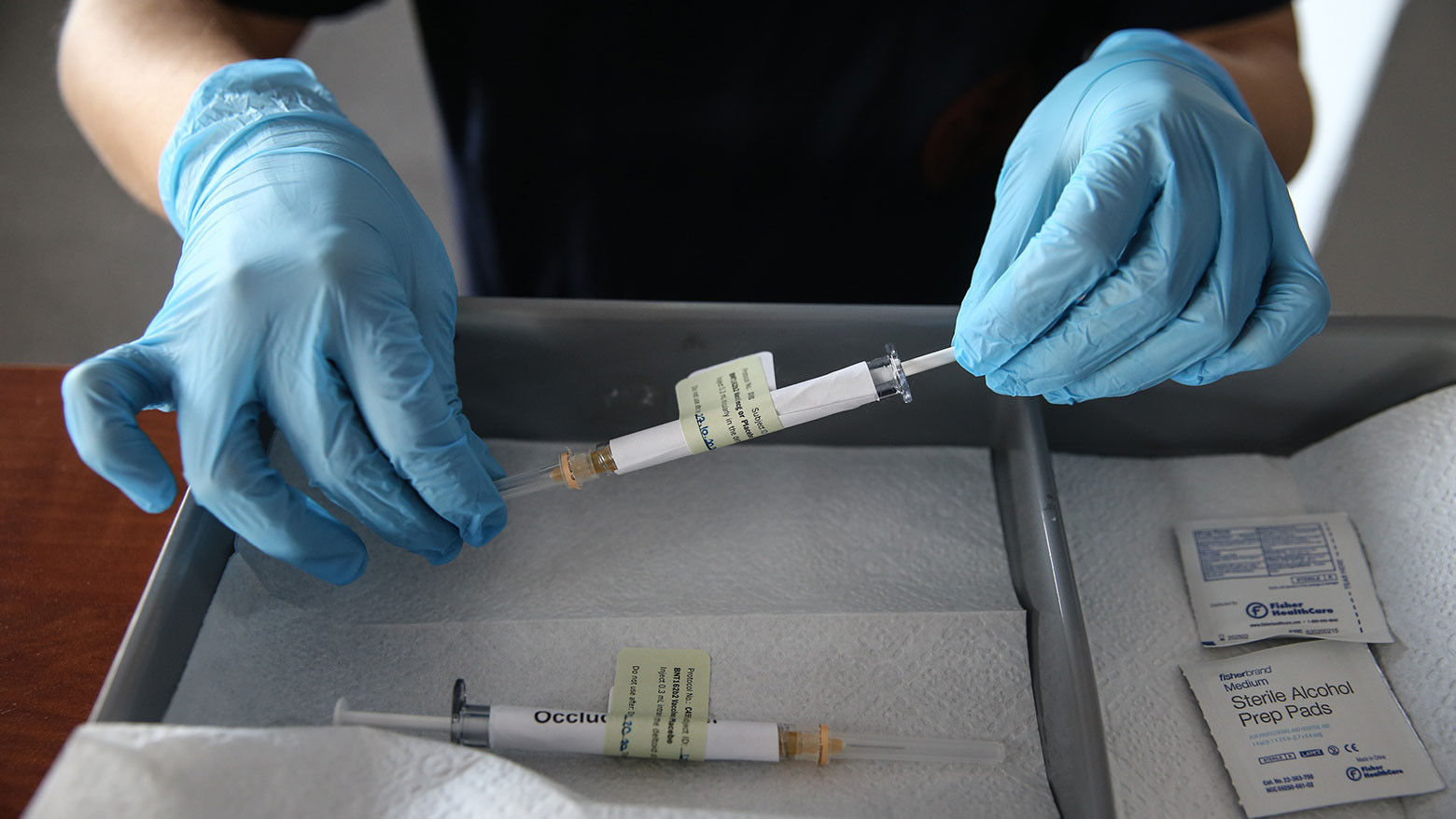While pharmaceutical companies rush to develop vaccines, it’s becoming clear that some of the leading candidates will need to be kept at temperatures of around minus 70 to 80 degrees Celsius -- similar to the lowest temperatures at the South Pole. These ultra-low temperature delivery types are known as mRNA, or messenger RNA-based vaccines, and are considered a revolutionary new approach intended to boost the production of antibodies.
Staggering numbers
German logistics firm Deutsche Post DHL Group released a white paper this fall pointing out the difficulty of securing stable supply chains that meet the stringent temperature requirements for such vaccines. It estimated that it could take 15,000 flights and 15 million cooling boxes to ship the required vaccines over the next two years.
In Japan, the government has made a deal with US pharmaceutical giant Pfizer to receive 120 million doses of an mRNA coronavirus vaccine, if it proves effective. Japanese firm Daiichi-Sankyo is also trying to develop an mRNA product in collaboration with the University of Tokyo.
But the logistics industry here may not be ready to deliver the quantity of doses necessary for Japan’s population of 120 million. Experts say vaccine deliveries at such low temperatures are very rare, and are usually made in the thousands at most, not the tens of millions.
Is delivery even possible?
The country will likely face a logistics crisis, including a lack of cooling boxes, pallet shippers, warehousing, and last-mile delivery that meets the stringent temperature conditions. Private carriers and storage firms are making large investments in medical supply chains because of the pandemic, but many say that ultra-low-temperature delivery is extremely difficult, if not impossible, due to their lack of experience.
Planning ahead and sharing information between the government and the private sector will be key to avoiding a logistics crisis when a COVID-19 vaccine arrives. Developing a vaccine -- and preparing supply chains to deliver it -- need to be explored simultaneously in Japan, alongside the rest of the world.

